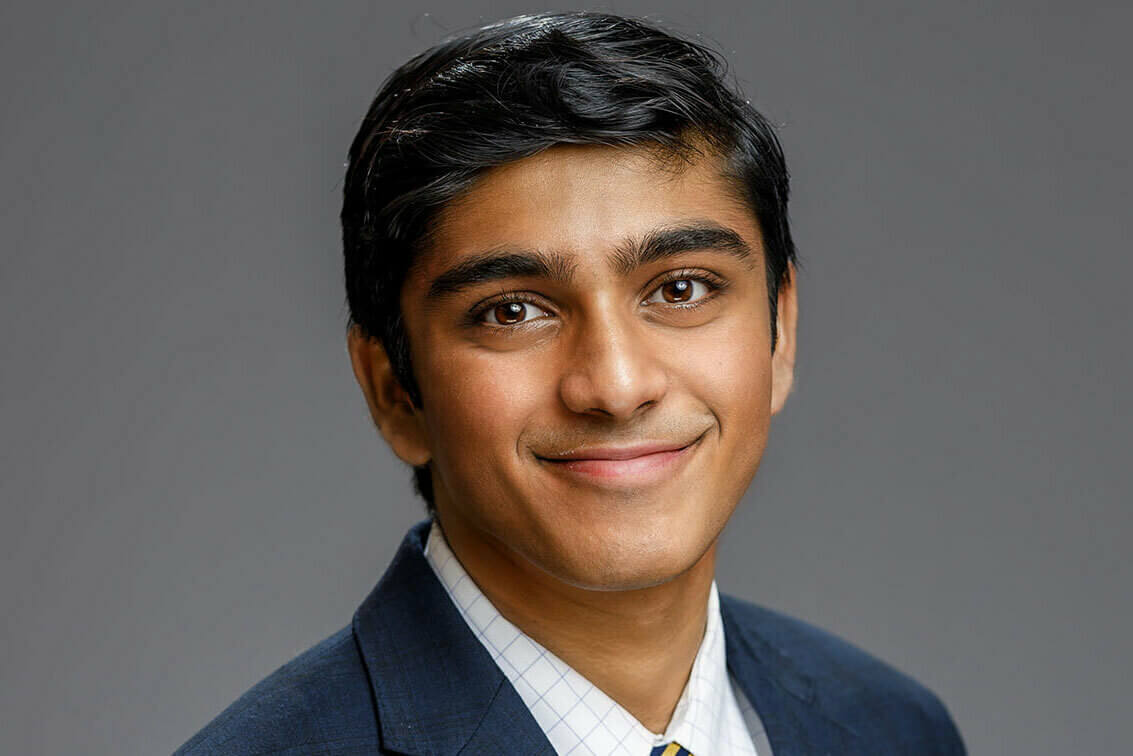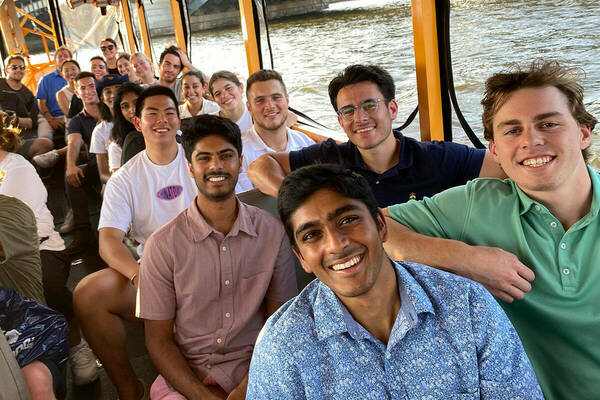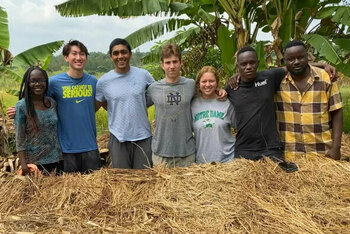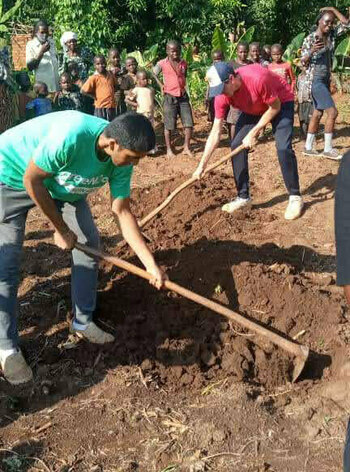
Anoop Sunkara is ready to work in consulting. Or be a doctor. Or advocate for better health care public policy.
Wherever his career path ends up taking him, the coursework, research, internships, service, and hands-on training he’s completed during his time at Notre Dame have prepared him to do it all.
“The Arts & Letters education is a fantastic track for students who desire to study and expand their knowledge beyond the traditional science field,” said Sunkara, a senior majoring in economics and Arts & Letters pre-health. “For me, I’ve always wanted to be taking science classes, but Arts & Letters gives me a vocational perspective — an ability to think and speak about big-picture issues beyond knowing basic chemistry and biology.”
During his first three years at Notre Dame, the native of Rochester, New York, has worked as a transport EMT, job-shadowed physicians, conducted research, participated in global health projects, and consulted for a life-sciences consulting company.
All of which have enriched his understanding of health care — from multiple angles.
“These experiences have given me the opportunity to see all that I can do in health care, outside of being a doctor,” he said.
“The Arts & Letters education is a fantastic track for students who desire to study and expand their knowledge beyond the traditional science field. For me, I’ve always wanted to be taking science classes, but Arts & Letters gives me a vocational perspective — an ability to think and speak about big-picture issues beyond knowing basic chemistry and biology.”
Putting patients first
As an A&L pre-health major, Sunkara has been able to take all the science courses he needs to be ready for medical school, while also having the space in his schedule to take intriguing classes across the arts, humanities, and social sciences — especially in his primary major, economics.

Courses in economics and poverty studies have played an essential role in expanding his understanding of how health care works domestically and abroad, and how he can change that for the better as a doctor or public policy administrator.
“Especially as health care is becoming much, much more of a business and a commodity rather than something that’s treated as a universal need or right, I think it’s becoming more important for physicians and anyone in the health care sector to have a knowledge of the change economics behind that,” he said.
Sunkara, a poverty studies minor and a Suzanne and Walter Scott Scholar, spent this summer interning at Putnam Associates, a Boston-based boutique life sciences pharmaceutical consulting company. He helped develop strategy for organizations on topics related to commercialization, patient outreach, and competitor analysis. He organized interviews with patients and providers, conducted market research, and worked to identify key drivers of organizational success.
The 10-week experience reinforced his interest in the field, and provided him with insights about how consulting could be an avenue for structural-level changes that impact hundreds of thousands of people.
“After seeing clients think about business problems from the lens of patients and working to make drugs more accessible, I realized that there is often a human element of compassion that is present in the life science industry,” he said. “Consulting firms can have an especially important role in helping shape strategy, making patient impact a primary focus.”
The personal side of policy
While Sunkara initially plans to pursue a consulting career after graduation, he still feels drawn toward the opportunity to have a direct impact on the lives of patients. He plans to go to medical school eventually, thanks in part to the research and service experiences he had at Notre Dame.

With Marie Donahue, a faculty member at the Eck Institute for Global Health, he planned a health malnutrition intervention in Uganda. In summer 2021, Sunkara and fellow students traveled to the Busoga region to serve more than 1,500 people through implementing an education program and a community garden.
He also spent time in Detroit and Flint, Michigan, on a trip with the Center for Social Concerns, learning from local health leaders in underserved communities.
“Being able to see the personal side of policy makes it easier to see the impacts of policy changes on real people, rather than dehumanizing the impact,” he said.
Showing compassion and humanity
Sunkara also witnessed the disparities between urban and rural health centers while working as a transport EMT in the South Bend area.

As an EMT, he took vitals, did physical and pain examinations, and engaged with patients, especially during long transports. A nurse he worked with on that team helped him see that the experience was about more than providing care — it was an opportunity to learn about people.
“She told me to take advantage of the time in the ambulance to hear really different and interesting perspectives about the world,” he said, “and use this time to show compassion and humanity for the patients we are serving.”
Sunkara also has gained hands-on experience in research — both virtual and in-person.
In summer 2020, in the midst of the pandemic, he analyzed data on the relationship between psychosocial issues and eye health in senior communities for the University of Rochester.
And he’s worked in the Lobo Lab at Notre Dame, which specializes in researching mosquito-borne disease transmission, in part to inform policies that protect vulnerable people from viruses like malaria and dengue.
No matter where his career path leads him after Notre Dame, Sunkara has developed a valuable set of skills and experiences that have expanded his understanding of the world — and refined his understanding of how he can make a difference in it.
“It’s important to have a discipline that you’re passionate about and then make yourself a unique part of it,” he said. “And my time in Arts & Letters has pushed me to discuss, debate, and develop my thoughts on world issues — especially what I’m thinking about on health care issues outside of the common norm.”
“It’s important to have a discipline that you’re passionate about and then make yourself a unique part of it. And my time in Arts & Letters has pushed me to discuss, debate, and develop my thoughts on world issues — especially what I’m thinking about on health care issues outside of the common norm.”


